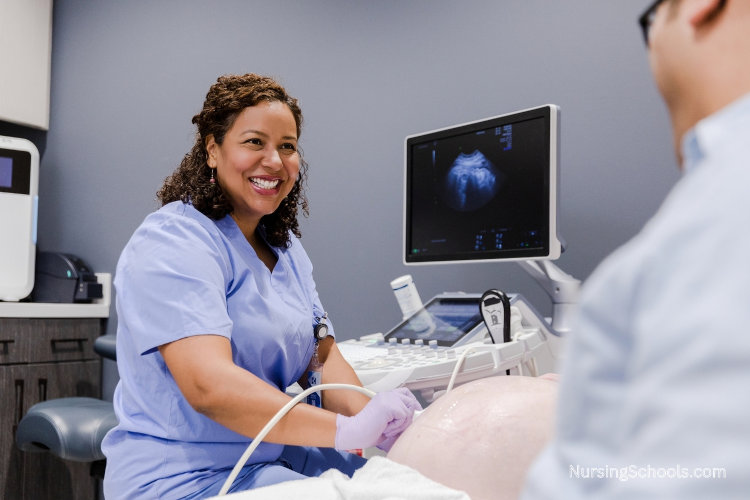Reproductive Nurse
Nursing Career Guide

Helping individuals and couples grow their families is at the heart of what a Reproductive Nurse does. These nurses support patients through fertility treatments, family planning, hormone therapy, and reproductive health education. They often collaborate with endocrinologists, obstetricians, and fertility specialists in clinics, hospitals, and reproductive medicine centers. Let's delve into the Reproductive Nurse specialty and explore what it takes to thrive in this emotionally rewarding nursing career.
Overview
What Is a Reproductive Nurse?
A Reproductive Nurse specializes in assisting patients with fertility, pregnancy, contraception, and reproductive health concerns. These nurses provide care for individuals and couples seeking fertility treatments, hormonal therapy, prenatal care, and reproductive education.
Reproductive Nurses work in fertility clinics, obstetrics and gynecology offices, hospitals, and reproductive health centers. They assist in procedures such as in vitro fertilization (IVF), intrauterine insemination (IUI), egg retrieval, and hormonal treatments.
This career requires expertise in reproductive medicine, patient education, and emotional support to help patients navigate their reproductive health journeys.
Education
How To Become a Reproductive Nurse
Becoming a Reproductive Nurse requires a combination of traditional nursing education, clinical experience, certification, and specialized training in reproductive health and fertility treatments. Follow these steps to enter this challenging and rewarding healthcare career:
- Earn a Nursing Degree. Complete an Associate of Science in Nursing (ASN) or Bachelor of Science in Nursing (BSN). A BSN is preferred for advanced reproductive nursing roles.
- Pass the NCLEX-RN. Obtain your nursing license by passing the National Council Licensure Examination for Registered Nurses (NCLEX-RN).
- Gain Clinical Experience. Work as a Registered Nurse (RN) in obstetrics, gynecology, or reproductive health clinics.
- Obtain Reproductive Nursing Certification. Earn the National Certification Corporation (NCC) Reproductive Endocrinology/Infertility Nursing (REI) certification to demonstrate expertise in fertility and reproductive healthcare.
- Continue Professional Development. Stay updated with advancements in fertility treatments, hormonal therapies, and reproductive technologies through continuing education courses and professional workshops.
On average, it takes 4-6 years to become a Reproductive Nurse, including nursing school, licensure, and obtaining specialized training. Certification enhances job opportunities and credibility in this field.

Average Salary
How Much Does a Reproductive Nurse Make?
Salaries for Reproductive Nurses vary based on experience, location, and work setting. On average, a Reproductive Nurse can expect to earn between $75,000 and $110,000 annually.
Average annual salary for a Reproductive Nurse:
- Entry-level: $75,000 - $85,000 per year.
- Mid-career: $85,000 - $100,000 per year.
- Experienced: $100,000 - $110,000 per year.
The U.S. Department of Labor reports that Reproductive Nurses earn an average hourly wage of approximately $39.00 per hour. Assuming a 40-hour workweek, this equates to an annual salary of $81,120. The lowest 10% earn less than $34.00 per hour, while the highest 10% earn more than $48.00 per hour, resulting in an annual salary range of $70,720 to $99,840 per year.
Job Duties
What Does a Reproductive Nurse Do?
Reproductive Nurses provide specialized care in fertility, pregnancy planning, and hormonal therapies. Their role includes assisting with fertility treatments, educating patients, and providing emotional support.
The most common job duties of a Reproductive Nurse:
- Conducting Fertility Assessments. Assist in evaluating hormonal levels, ovulation cycles, and reproductive health conditions.
- Assisting with Fertility Treatments. Support patients undergoing fertility treatments like IVF, IUI, egg retrieval, and embryo transfers.
- Administering Hormonal Therapy. Monitor and manage fertility medications, injections, and hormone replacement therapies.
- Educating Patients on Reproductive Health. Provide counseling on fertility preservation, contraception, and prenatal care.
- Monitoring Pregnancy Progress. Assist with early pregnancy care, prenatal screenings, and fetal development monitoring.
- Providing Emotional Support. Counsel patients and couples facing infertility challenges or pregnancy loss.
- Coordinating Care with Specialists. Work with endocrinologists, obstetricians, nurse midwives, and fertility specialists to develop treatment plans.
- Advanced Duties. Experienced Reproductive Nurses may specialize in research, reproductive endocrinology, or donor egg/sperm programs.
Reproductive Nurses typically work in fertility clinics, OB/GYN offices, reproductive health centers, and hospitals. Their role is crucial in helping individuals and couples achieve their reproductive health goals.

Essential Skills
What Skills Does a Reproductive Nurse Need?
Reproductive Nurses require a combination of clinical knowledge, patient counseling skills, and expertise in fertility treatments. These skills enable them to support patients through reproductive healthcare journeys effectively.
Here are some of the skills a Reproductive Nurse needs to succeed:
- Fertility Treatment Knowledge. Understand IVF, IUI, egg retrieval, and embryo transfers.
- Hormonal Therapy Management. Administer and monitor fertility medications and hormone replacement therapies.
- Patient Counseling. Provide guidance on reproductive health options, including fertility preservation and family planning.
- Critical Thinking. Assess and respond to fertility treatment outcomes and hormonal imbalances.
- Collaboration. Work with fertility specialists, endocrinologists, labor and delivery, and OB/GYN teams.
- Communication. Explain complex fertility treatments and reproductive health information in a clear, supportive manner.
- Emotional Support. Offer compassionate care to patients struggling with infertility or pregnancy loss.
- Research and Technology Skills. Stay informed about reproductive advancements, donor programs, and emerging fertility treatments.
One of the biggest challenges of being a Reproductive Nurse is helping patients cope with the emotional and physical demands of fertility treatments. However, the role is highly rewarding, as it allows nurses to support individuals and couples in achieving their reproductive health goals.
Last updated: August 26, 2025
References:
- Registered Nurses. Bureau of Labor Statistics, U.S. Department of Labor. Occupational Outlook Handbook. Retrieved August 26, 2025.
- NCLEX Nurse Licensure Exam. National Council of State Boards of Nursing (NCSBN). Retrieved August 26, 2025.
- Reproductive Nurse. Johnson & Johnson, Nursing Careers. Retrieved August 26, 2025.
- Infertility Nurse Salary in the United States. ZipRecruiter, Healthcare Career Path. Retrieved August 26, 2025.
- Reproductive Endocrinology/Infertility Nursing Certification. National Certification Corporation (NCC). Retrieved August 26, 2025.
- Infertility Prevention and Health Promotion: The Role of Nurses in Public Health Initiatives. Galen Medical Journal, PubMed Central (PMC). Retrieved August 26, 2025.
- Reproductive Endocrinology and Infertility. Stanford University, Obstetrics and Gynecology. Retrieved August 26, 2025.
- IVF Step By Step. University of Utah, Healthcare Center for Reproductive Medicine. Retrieved August 26, 2025.


